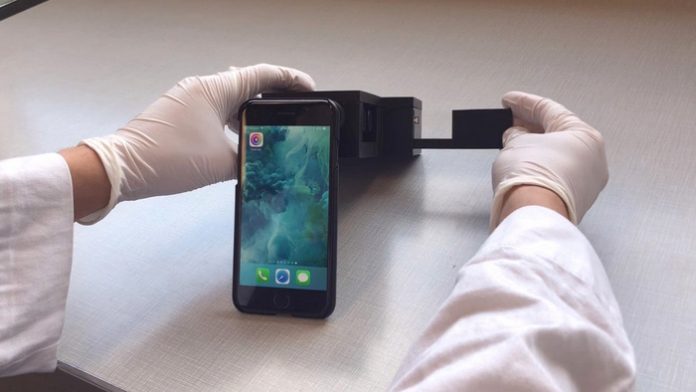Using just a smartphone and a paper microfluidic chip it is possible to detect extremely low levels of norovirus, a very contagious virus responsible for millions of cases of acute gastroenteritis around the world each year.
The virus can be contagious at very low levels, with just 10 virus particles being enough to cause an infection. Now, researchers from the University of Arizona in the US have found an efficient way to detect even the smallest levels of the virus.
Existing devices for detecting norovirus require a laboratory and expensive equipment. With the new method, researchers used just paper and a smartphone. The fibrous structure of paper allows liquid to flow spontaneously without using the pumping systems that silicon chips usually require.
The scientists added water suspected of holding norovirus to one end of a paper microfluidic chip and beads made of fluorescent polystyrene to the other end. Each of these tiny beads was attached to an antibody that fights the virus. If norovirus is present in the water, several antibodies go on to attack it, attaching themselves to the virus particle and creating a fluorescent clump.
The clumps of beads are large enough for a smartphone to pick them up and photograph them. The researchers also created a smartphone app that automatically analyses the norovirus particles in the sample. The device is also cheap, with its most expensive component costing less than $50.
The researchers hope that the use of their device to rapidly and at low cost monitor the quality of water could be a transformational tool for reducing both local and global water-borne disease burdens.






















